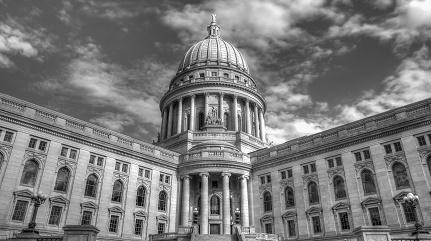Democrats have been quick to highlight the student loan crisis as a talking point this election cycle. Here in Wisconsin, Gov. Scott Walker and candidate Mary Burke both argue that their policies are the better way to combat the growing student debt crisis.
At the University of Wisconsin, the average student graduates with $27,000 in debt, which prevents graduates from taking out loans for homes, cars or even studying at other institutions. Obviously, this crisis is approaching a tipping point and action needs to be taken to solve the current situation.
Mary Burke has touted the state Democrats’ Higher Ed, Lower Debt bill as the solution to this crisis. While the name sounds good, it will do little to actually make college more affordable. This bill would add another government bureaucracy that students and families would have to deal with in order to pay off their loans. One could also argue that this bill would shift the liability of student loans from the federal government and private banks to Wisconsin taxpayers. If the agency created by this bill could not pay off the bonds, the bill would then be passed along to the taxpayers.
Walker, on the other hand, passed the first ever two-year tuition freeze for the UW System in his last budget. Previously, UW tuition had risen at a 7.4 percent rate in the past ten years, meaning that tuition at Wisconsin was almost doubling every ten years. When Walker and other Republicans discovered the UW System’s massive cash reserves, they knew that the responsible thing to do was to call for tuition freeze. Due to the success of the first freeze, Walker has promised to enact another two-year freeze in his next budget if he is re-elected.
Meanwhile, Mary Burke has refused to commit to another tuition freeze, which should concern students. If Mary Burke is anything like her Democratic predecessor, former Gov. Jim Doyle, students may be in for a shock if she were to be elected governor. In Doyle’s first state budget, UW tuition rose by 18 percent in the first year and 15 percent in the second year, effectively placing a heavy weight on students and their families to balance the state budget. How can we be certain that Mary Burke won’t do the same thing? Students cannot afford to elect a governor who won’t promise to keep tuition rates low.
Also, the Higher Ed, Lower Debt bill does not address the primary cause for student loan debt, which is rising tuition rates. The bill does nothing to freeze or cap tuition increases. Imagine student loan debt as a car heading towards a cliff. All the Higher Ed, Lower Debt bill does is slow down that car. Unfortunately, the car is still headed towards that cliff. By enacting the freeze, Walker has at least halted the rising rates of tuition. Many students may also be surprised to find out that the governor has increased state based financial need to its highest level in Wisconsin history. While the Democrats claim to be for the students, it has been Walker and other state Republicans who have been leading the way to make college more affordable in the state of Wisconsin.
The real reform needed concerning student loan debt will have to come from the federal government because it is the primary cause of the current crisis. But, that does not mean that the governor and the state legislature should be idle in confronting the issue. The Higher Ed, Lower Debt bill does not present a reasonable solution to the problem. No proof exists that it would even lower interest on student loans. By freezing tuition, Walker has eased the financial burden of attending a UW school. Walker’s plan for keeping college affordable to all students is just one of the many reasons why I will be supporting him in the fall.
Charlie Hoffmann (gopbadgers@gmail.com) is the chairman of the College Republicans and a junior majoring in economics and journalism.


